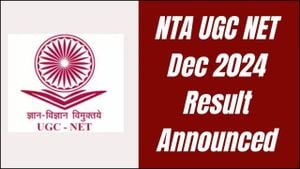The Andhra Pradesh Public Service Commission (APPSC) is currently at the center of controversy following the announcement of the postponement of the Group 2 Mains Examination, originally scheduled for February 23, 2025. This decision was compelled by formal requests from the Andhra Pradesh state government citing issues related to the roster system. This examination, anticipated by thousands of candidates, has become a focal point of protests due to reported discrepancies.
After allegations of errors within the roster system were raised, the AP government swiftly communicated its concerns to the APPSC. The government addressed the APPSC Secretary, insisting on postponing the exam until the matter could be adequately deliberated by the High Court. The High Court is slated to hold hearings on March 11, 2025, providing the legal avenue necessary for stakeholders to voice their concerns.
According to reports, the issues at hand pertain to the way the APPSC had structured the roster, with candidates arguing it contradicts directives established by the Supreme Court. The government reaffirmed its position, explaining, “Conducting the examination before all aspects were examined would not be in the best interests of the candidates.” This cautionary approach gives credence to candidates' demands for adjustments before proceeding with the examination.
The APPSC had initially refuted reports circulating on social media about the exam being postponed, labeling much of the information as false. The commission issued statements underscoring their commitment to clear communication about the exam's status, prompting them to file complaints against those spreading misinformation.
“It is learnt...that Main Examination for Group-II Services is postponed. This information is false and police compliant...is being...” warned APPSC through its formal notification, reinforcing its efforts against fake news. Yet, with the intervention from the state government, the reality of the situation shifted, leading to the decision to delay.
Candidates have been vocal with their frustrations, with protests intensifying as the original exam date approached. Many expressed their fears and apprehensions about taking the exam under the current circumstances, citing the necessity of rectifying roster errors first. “I’ve received numerous requests from Group 2 aspirants to postpone the examinations. I understand their concerns and, in consultation with our legal teams, we will explore all possible avenues to find a solution,” said Nara Lokesh, the Andhra Pradesh Human Resource Development Minister, acknowledging the unrest and calls to action.
Despite the chaos, APPSC maintains its resolve to conduct the examination, having previously confirmed release of hall tickets for the 92,250 candidates expected to sit for the test across 175 examination centers. This exam, intended to fill numerous posts across various state government departments, has been met with both excitement and anxiety amid the current scenario.
The ramifications of the pending judicial review can significantly reshape the forthcoming events, determining whether adjustments to the roster method will be made prior to the administration of the exam. Left uncertain is the exact date for the exam’s rescheduled administration as confirmation is expected only after the court's ruling.
It's pertinent to note the role of the commission's communications during this tumultuous period. APPSC has encouraged candidates to stay updated via their official channels, drastically curbing the spread of unverified claims which may exacerbate concerns surrounding the exam.
Interestingly, the conflict surrounding the roster also reflects broader systemic issues within the public service recruitment framework, raising questions about transparency and adherence to regulatory protocols. These factors remain pertinent as Andhra Pradesh moves forward with the exam process.
Through all of this, clarity and adherence to legal guidance will be indispensable. Candidates are urged to prepare for possible changes as the situation is closely monitored. The jurisdiction of the High Court will undoubtedly play a pivotal role as resolutions are sought for the current dilemmas facing appointees to fill the substantial number of vacancies across the state’s departments.
With protests and discussions mounting, the next updates from the APPSC following the court's review will be awaited with bated breath. Candidates remain hopeful for solutions, yet guarded as debates around equity and justice continue to resonate across the community.



